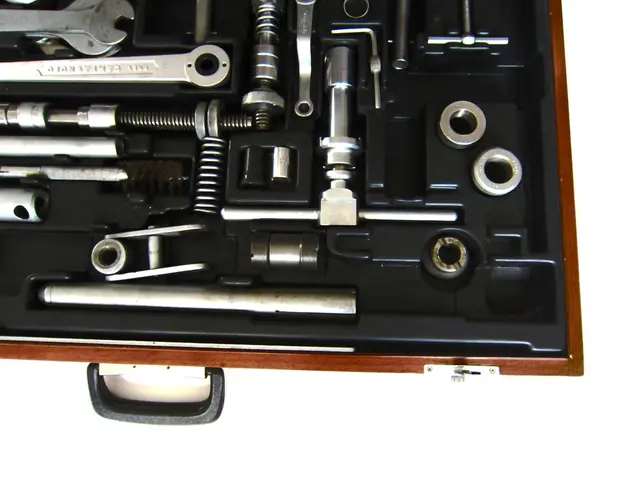Inquiries you ought to definitely pose during an interview, as per Global Talent Leader at EY
Nail Your Next Job Interview with These Killer Questions
Interviewing well isn't just about answering questions—it's about asking them too! Asking the right questions shows your interest in the role and the company. Here's what you should ask your interviewer:
Questions to Ask Your Interviewer
1. "What does success look like in this role?"
Asking this question shows that you care about performance and want to know the standards you'll be held to. This question also gives you an opportunity to ask follow-up questions about the company's expectations.
2. "What can you tell me about the company culture and why you enjoy working here?"
Understanding the company culture is crucial for determining if you'll be a good fit. Companies with a positive culture often have happier employees, so this question isn't just about the perks. It's about finding a work environment that suits your personality and values.
Now, let's dive deeper with some additional questions to ask your interviewer:
Job Role
- What will a typical day look like for me in this role?
- This question helps you understand the day-to-day responsibilities and how they align with your skills.
- How do you measure success in this position?
- Knowing the key performance indicators (KPIs) helps you tailor your responses and aspirations to the role's expectations.
- What are some of the most challenging aspects of this role?
- Asking about the challenges helps you prepare for potential roadblocks and shows your eagerness to address them head-on.
- What opportunities are there for professional development within this job role?
- Questions about growth and learning demonstrate your commitment to self-improvement and your long-term potential within the company.
Company Culture and Environment
- Can you describe the company culture and why it appeals to you?
- This question will give you an idea of the work environment and whether it aligns with your own values and preferences.
- How does this position interact with other departments, and what collaborative opportunities are available?
- Asking about collaboration helps you gauge the company's emphasis on teamwork and how you'll fit in the larger organization.
Team and Colleagues
- Could you share more about the team I'll be working with and the dynamic I can expect?
- Understanding your colleagues' roles and the team structure can help you anticipate your work environment and identify potential synergies.
- Who would I be reporting to, and what is the reporting structure within the company?
- Knowing your direct supervisor and the hierarchy helps you understand the communication channels and who you'll rely on for support.
Growth and Future
- How has this position evolved over time, and how does the company support professional development?
- Asking about growth opportunities shows your ambition and your eagerness to grow within the company.
- What are the company's short-term and long-term goals, and how does this role contribute to them?
- Questions about strategic objectives help you understand how your role fits into the big picture and set your own goals accordingly.
- Are there opportunities for advancement within the company, and what steps would I need to take to pursue them?
- Asking about advancement potential shows your ambition and your long-term vision with the company.
Asking these questions will not only show your interest but also provide valuable insights that can help you make informed decisions and get one step closer to landing your dream job!
In the pursuit of understanding the role and the company, it's beneficial to ask about opportunities for education-and-self-development and career-development. For instance, you could ask, "What opportunities are there for professional development within this job role.?" Also, to gauge the company culture, you might inquire about job-search, by asking, "Can you describe the company culture and why it appeals to you?" Inquiring about these aspects can help you determine if the position aligns with your long-term goals and aspirations.








